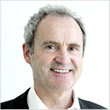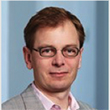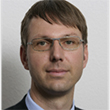About this course
Cities are first and foremost built for people, and in today’s world, people produce large amounts of valuable data, thus contributing to what we call “smart cities." As almost every building and every city is a prototype, these communities are in the early stage of development and require specific attention and expertise as we advance.
Smart cities, such as Zurich and Boston, consist of human-made structures or environments that are, in some capacity, monitored, metered, networked and controlled. With this functionality, combined with stationary sensors and mobile devices, data and information have become the new building materials of future cities. Using this data, citizens are now beginning to influence the design of future cities and the re-design of existing ones.
In this architecture course, you will learn the basics of information cities and urban science research, as well as how dynamic behavior and citizen-driven learning differentiate the responsive city from the smart city. The cities we present and develop in this course use the stocks and flows of information as the main drivers of change.
To deepen your knowledge of smart cities and give a perspective on the future of these cities, we also introduce the concept of citizen design science, a combination of citizen science, urban design, and cognitive design computing. Participants will furthermore have unique access to a design research platform for citizen design science. The intelligent use of data and information is at the core of this course, and these concepts will be the next generation of participatory design and design computing environments.
This course is part of the “Future Cities” XSeries, and builds on the experiences from our first two urban MOOCs: Future Cities and Livability in Future Cities.
Course Staff
Gerhard Schmitt
Professor of Information Architecture, ETH Zurich
Gerhard Schmitt is Professor of Information Architecture at ETH Zurich, leader of the ETH Future Cities Laboratory Simulation Platform and Principal Investigator in BigData-Informed Urban Design of the Future Cities Laboratory 2, Founding Director of the Singapore-ETH Centre in Singapore, and ETH Zurich Senior Vice President for ETH Global. His research focuses on urban simulation, Smart Cities and linking Big Data with Urban Design. From 1998-2008 he served as Vice President for Planning and Logistics and Member of the Board of ETH Zurich. He directed the development of ETH’s strategy and planning in cooperation with the 16 scientific departments. From 1984 to 1988 he conducted CAAD research and teaching at Carnegie Mellon University. He was Visiting Professor at Harvard GSD, at the Katholieke Universiteit Leuven, the Technical University of Denmark and at the Technical University of Delft. From 2004-2007 he chaired the Visiting Committee of the Graduate School of Design at Harvard University and initiated ETH Science City.
Estefania Tapias
Postdoctoral fellow and Lecturer, Chair of Information Architecture, ETH Zurich
Estefania Tapias is Postdoctoral fellow and Lecturer at the Chair of Information Architecture, ETH Zurich. Her research is focus on Information Cities and climate-sensitive urban planning. Estefania attained her doctoral degree at ETH Zurich and obtained the PhD label from Climate-KIC; one of three Knowledge and Innovation Communities (KICs) created by the European Institute of Innovation and Technology (EIT). At ETH Zurich she teaches the course ‘Digital Urban Simulation’ where ETH students learn how to analyse and generate spatial urban configurations with advanced computational methods.
Christoph Hölscher
Professor, Cognitive Science, ETH Zurich
Christoph Hölscher is Professor of Cognitive Science at ETH Zurich since 2013; previously assistant and extra-curricular professor at University of Freiburg, Germany, Center for Cognitive Science. Doctorate (2000) and Habilitation (2009) in Psychology at University of Freiburg. Project manager in IT industry from 2000-2003 (User-adaptive systems, usability). Visiting positions: University College London, honorary senior research fellow Bartlett School of Architecture / Space Syntax group (since 2007). Visiting professor at UC Santa Barbara, departments of Geography and Psychology (2011 & 2012). Visiting researcher and project manager at University of Freiburg / SFB/TR8 Spatial Cognition (2013-2014).
Dirk Helbing
Professor, Computational Social Science, ETH Zurich
Dirk Helbing is Professor of Computational Social Science at the Department of Humanities, Social and Political Sciences and affiliate of the Computer Science Department at ETH Zurich. He earned a PhD in physics and was Managing Director of the Institute of Transport & Economics at Dresden University of Technology in Germany. He is internationally known for his work on pedestrian crowds, vehicle traffic, and agent-based models of social systems. Furthermore, he coordinates the FuturICT Initiative (http://www.futurict.eu), which focuses on the understanding of techno-socio-economic systems, using smart data. His work is documented in hundreds of scientific articles, keynote lectures and media reports worldwide. Helbing is an elected member of the prestigious German Academy of Sciences "Leopoldina" and worked for the World Economic Forum’s Global Agenda Council on Complex Systems. He is also co-founder of the Physics of Socio-Economic Systems Division of the German Physical Society and of ETH Zurich’s Risk Center. In 2013, he became a board member of the Global Brain Institute in Brussels. Within the ERC Advanced Investigator Grant "Momentum" he works on social simulations based on cognitive agents. His recent publication in Nature discusses globally networked risks and how to respond. In a further publication in Science, he furthermore contributed to the discovery of the hidden laws of global epidemic spread. On January 10, 2014, he received a honorary PhD from Delft University of Technology, where he is now heading the PhD program "Engineering Social Technologies for a Responsible Digital Future".
Bige Tunçer
Associate Professor, Singapore University of Technology and Design
Bige Tunçer is an associate professor at Singapore University of Technology and Design. She leads the Informed Design Group, which focuses on data collection, information and knowledge modeling and visualization, for informed architectural and urban design. She has led and participated in various research projects in design computation. She currently leads a large multi-disciplinary project, investigating multi-modal data collection on user and usage information of public spaces in residential new towns, and develops a design system for the adaptive redesign of such spaces. She has taught many design computation and studio courses to undergraduate and graduate students. Currently she teaches Capstone, where all engineering and architecture students form groups to work on industry defined and funded design projects and develop prototypes.
Markus Schläpfer
Lead, Urban Complexity Project, ETH Future Cities Lab
Markus Schläpfer is currently leading the Urban Complexity project at the ETH Future Cities Lab in Singapore. After receiving his PhD from ETH Zurich in Mechanical Engineering, he conducted postdoctoral fellowships at MIT's Senseable City Lab and at the Santa Fe Institute, USA. His main research goals are the derivation of predictive quantitative models for the spatial organization of cities and its interplay with the optimal layout of urban infrastructure networks such as the energy supply system. To that end, Markus Schläpfer grounds his research on the increasing availability of large-scale data on human activities such as those automatically collected from mobile phone networks. He applies and further develops tools from network theory and complexity science to gain a comprehensive view of the dynamics of various cities worldwide.
Matthias Standfest
Postdoctoral Fellow, Chair of Information Architecture, ETH Zurich
Matthias Standfest is an architect with main interests directed towards understanding the geometric impact on architecture performance models using machine learning methods. As a researcher at ETH Zurich with Dr. Gerhard Schmitt and as a guest at FCL Singapore with Dr. Ludger Hovestadt, he has balanced method development for mesh based deep learning techniques with the application of these tools to predict urban simulation results in real time. His future research plans are aimed at extending these methods in order to use data streams of anthropocentric urban sensing setups to correlate human biofeedback with architectural design patterns. His aim is to establish a data driven workflow for predicting the holistic effects of formal architectural and urban design decisions in various scales.
Renate Schubert
Professor for Economics, ETH Zurich
Renate Schubert is a professor for economics at the Swiss Federal Institute for Technology in Zürich (ETHZ). She is author of numerous articles and books o n decision-making under risk and uncertainty, on energy and environmental issues, on developing countries’ problems as well as on gender issues. By means of experiments and other empirical methods she tries to explain seemingly non-rational behavior and to lay the grounds for ways to improve welfare. Renate Schubert had been head of the Centre for Economic Research at ETHZ. In July 2007 she founded the Institute for Environmental Decisions (IED) which she headed until 2014. She has been member and chair of National Research Councils as well as Government and University Advisory Boards in several countries. She is a principal investigator in the FRS part of the Singapore- ETH Center.
Kevin Schawinski
Professor of galaxy and black hole astrophysics, ETH Zurich
Kevin Schawinski (born 1981) is Professor of galaxy and black hole astrophysics at ETH Zurich and the co-founder of the Galaxy Zoo online citizen science project, which has engaged over half a million people in scientific research. His research focuses on the impact of the energy released by black hole growth on the formation and evolution of galaxies and discovering the ultimate origin of supermassive black holes in the Universe. After completing his D.Phil in three years at Oxford University, for which he won the Royal Astronomical Society's thesis prize, he moved to Yale University and won a NASA Einstein Fellowship. He has now returned to Switzerland as an SNF professor. He a passionate supporter of public involvement in scientific research.










